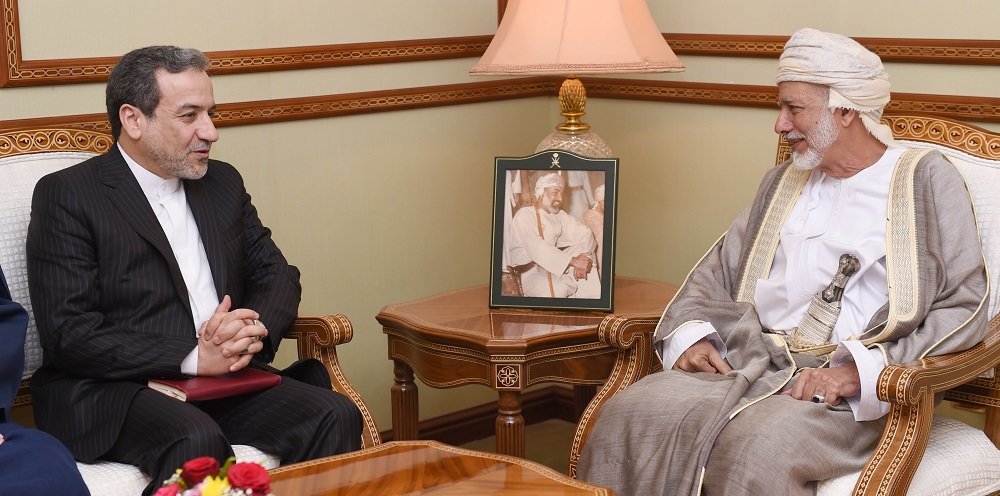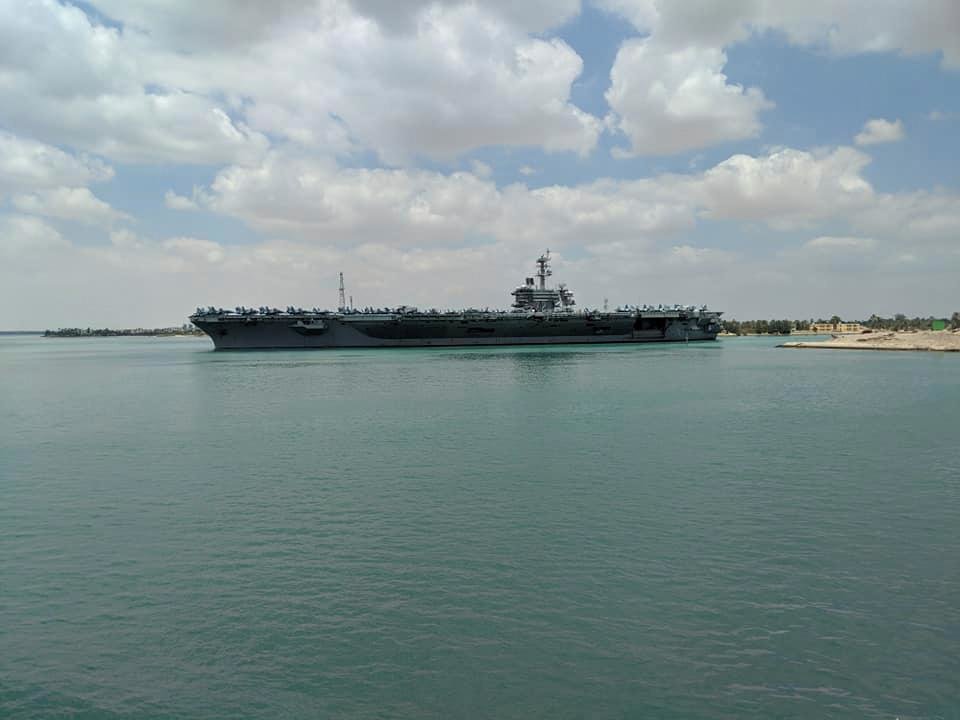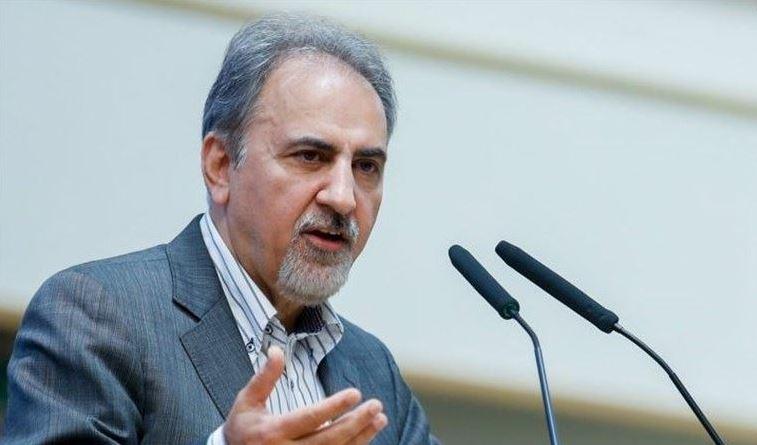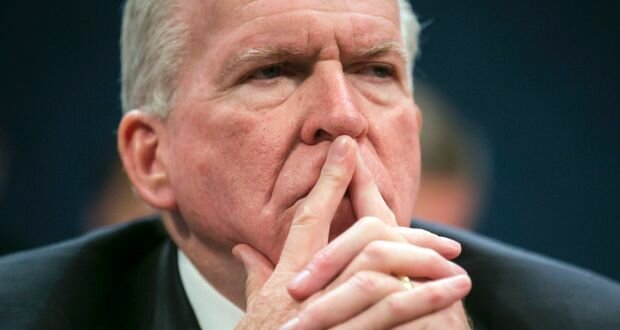Iran Sends Envoy to 3 Gulf States to Explore Communication Channels with US
Monday, 27 May, 2019

Oman’s minister responsible for foreign affairs, Yousuf bin Alawi bin Abdullah, receives Iranian Deputy Foreign Minister Abbas Araqchi in Muscat. (ONA)
Dammam, London – Merza al-Khuwaldi and Asharq Al-Awsat
Iranian Deputy Foreign Minister Abbas Araqchi kicked off on Sunday a tour to three Gulf states in an attempt by Tehran to explore channels of communication with the United States.
His first stop took him to Oman where he met with Yousuf bin Alawi bin Abdullah, the sultanate’s minister responsible for foreign affairs.
The two sides discussed aspects of the bilateral cooperation between the two countries. They also exchanged views on regional issues and developments, said the Oman news agency (ONA).
Bil Alawi had paid a visit to Tehran last week.
Araqchi made his trip amid mounting tensions with the United States, which last year withdrew from the 2015 nuclear deal signed between Iran and world powers. Washington has been seeking to tighten sanctions against Iran over its malign regional policies.
Tensions have ratcheted up recently in the Middle East as the White House earlier this month sent an aircraft carrier and B-52 bombers to the region over Iranian threats. On Thursday, the Pentagon outlined proposals to the White House to send military reinforcements to the Middle East to beef up defenses against Iran.
Last week, bin Alawi said that Muscat was seeking to ease tensions between Tehran and Washington. He did not confirm or deny mediation efforts by Oman.
Araqchi said there were no direct or indirect negotiations with the US, the Iranian Fars news agency quoted him as saying from Muscat.
He informed bin Alawi that Iran was prepared to establish “balanced and constructive” relations with all Gulf states based on mutual respect and interests.
“We do not want to raise tensions in the region,” he continued. Moreover, he stressed that ensuring regional stability entails ending the sanctions.
Imposing sanctions on Iran is a policy that has failed as demonstrated by past experiences, he added.
Araqchi is set to later visit Kuwait and Qatar as part of his Gulf tour.
Oman, Kuwait and Qatar have expressed their readiness to push forward reconciliation efforts between the US and Iran. They have also said they were ready to exert efforts to ease tensions between them.
On Friday, Kuwaiti Deputy Foreign Minister Khaled Al-Jarallah said that he believes that negotiations to calm tensions have indeed started between the US and Iran.
He said Kuwait is "confident" that wisdom and reasoning will prevail in the region without the need for clashes.
This confidence stems from statements made by US and Iranian officials over their reluctance
to go to war, he told reporters.
Kuwait stands ready and is poised to carry out efforts aimed at calming and stabilizing the situation and avoiding confrontation, he added, according to the Kuwait news agency (KUNA).
Qatar, for its part, was the first country to dispatch a senior envoy to Tehran to ease tensions. Its foreign minister reportedly traveled to Iran on the eve of the arrival of the American bombers to the Gulf. Reports at the time said that Doha had offered to mediate between the US and Iran.
Araqchi’s trips coincided with a tour by Iranian Foreign Minister Mohammed Javad Zarif to Pakistan and Iraq. The FM is also set to head to Turkey.

 aawsat.com
aawsat.com
Monday, 27 May, 2019

Oman’s minister responsible for foreign affairs, Yousuf bin Alawi bin Abdullah, receives Iranian Deputy Foreign Minister Abbas Araqchi in Muscat. (ONA)
Dammam, London – Merza al-Khuwaldi and Asharq Al-Awsat
Iranian Deputy Foreign Minister Abbas Araqchi kicked off on Sunday a tour to three Gulf states in an attempt by Tehran to explore channels of communication with the United States.
His first stop took him to Oman where he met with Yousuf bin Alawi bin Abdullah, the sultanate’s minister responsible for foreign affairs.
The two sides discussed aspects of the bilateral cooperation between the two countries. They also exchanged views on regional issues and developments, said the Oman news agency (ONA).
Bil Alawi had paid a visit to Tehran last week.
Araqchi made his trip amid mounting tensions with the United States, which last year withdrew from the 2015 nuclear deal signed between Iran and world powers. Washington has been seeking to tighten sanctions against Iran over its malign regional policies.
Tensions have ratcheted up recently in the Middle East as the White House earlier this month sent an aircraft carrier and B-52 bombers to the region over Iranian threats. On Thursday, the Pentagon outlined proposals to the White House to send military reinforcements to the Middle East to beef up defenses against Iran.
Last week, bin Alawi said that Muscat was seeking to ease tensions between Tehran and Washington. He did not confirm or deny mediation efforts by Oman.
Araqchi said there were no direct or indirect negotiations with the US, the Iranian Fars news agency quoted him as saying from Muscat.
He informed bin Alawi that Iran was prepared to establish “balanced and constructive” relations with all Gulf states based on mutual respect and interests.
“We do not want to raise tensions in the region,” he continued. Moreover, he stressed that ensuring regional stability entails ending the sanctions.
Imposing sanctions on Iran is a policy that has failed as demonstrated by past experiences, he added.
Araqchi is set to later visit Kuwait and Qatar as part of his Gulf tour.
Oman, Kuwait and Qatar have expressed their readiness to push forward reconciliation efforts between the US and Iran. They have also said they were ready to exert efforts to ease tensions between them.
On Friday, Kuwaiti Deputy Foreign Minister Khaled Al-Jarallah said that he believes that negotiations to calm tensions have indeed started between the US and Iran.
He said Kuwait is "confident" that wisdom and reasoning will prevail in the region without the need for clashes.
This confidence stems from statements made by US and Iranian officials over their reluctance
to go to war, he told reporters.
Kuwait stands ready and is poised to carry out efforts aimed at calming and stabilizing the situation and avoiding confrontation, he added, according to the Kuwait news agency (KUNA).
Qatar, for its part, was the first country to dispatch a senior envoy to Tehran to ease tensions. Its foreign minister reportedly traveled to Iran on the eve of the arrival of the American bombers to the Gulf. Reports at the time said that Doha had offered to mediate between the US and Iran.
Araqchi’s trips coincided with a tour by Iranian Foreign Minister Mohammed Javad Zarif to Pakistan and Iraq. The FM is also set to head to Turkey.

Iran Sends Envoy to 3 Gulf States to Explore Communication Channels with US
Iranian Deputy Foreign Minister Abbas Araqchi kicked off on Sunday a tour to three Gulf states in an attempt by Tehran to explore channels of communication with the United States. His first stop took him to Oman where he met with Yousuf bin Alawi bin Abdullah, the sultanate’s minister...





![[IMG] [IMG]](/proxy.php?image=https%3A%2F%2Faawsat.com%2Fsites%2Fdefault%2Ffiles%2Fstyles%2Farticle_img_top%2Fpublic%2F2019%2F05%2F29%2Fnajafi.jpg%3Fitok%3DFMfkN16F&hash=1b5b714d460dc5655603420b3281bf4c)



